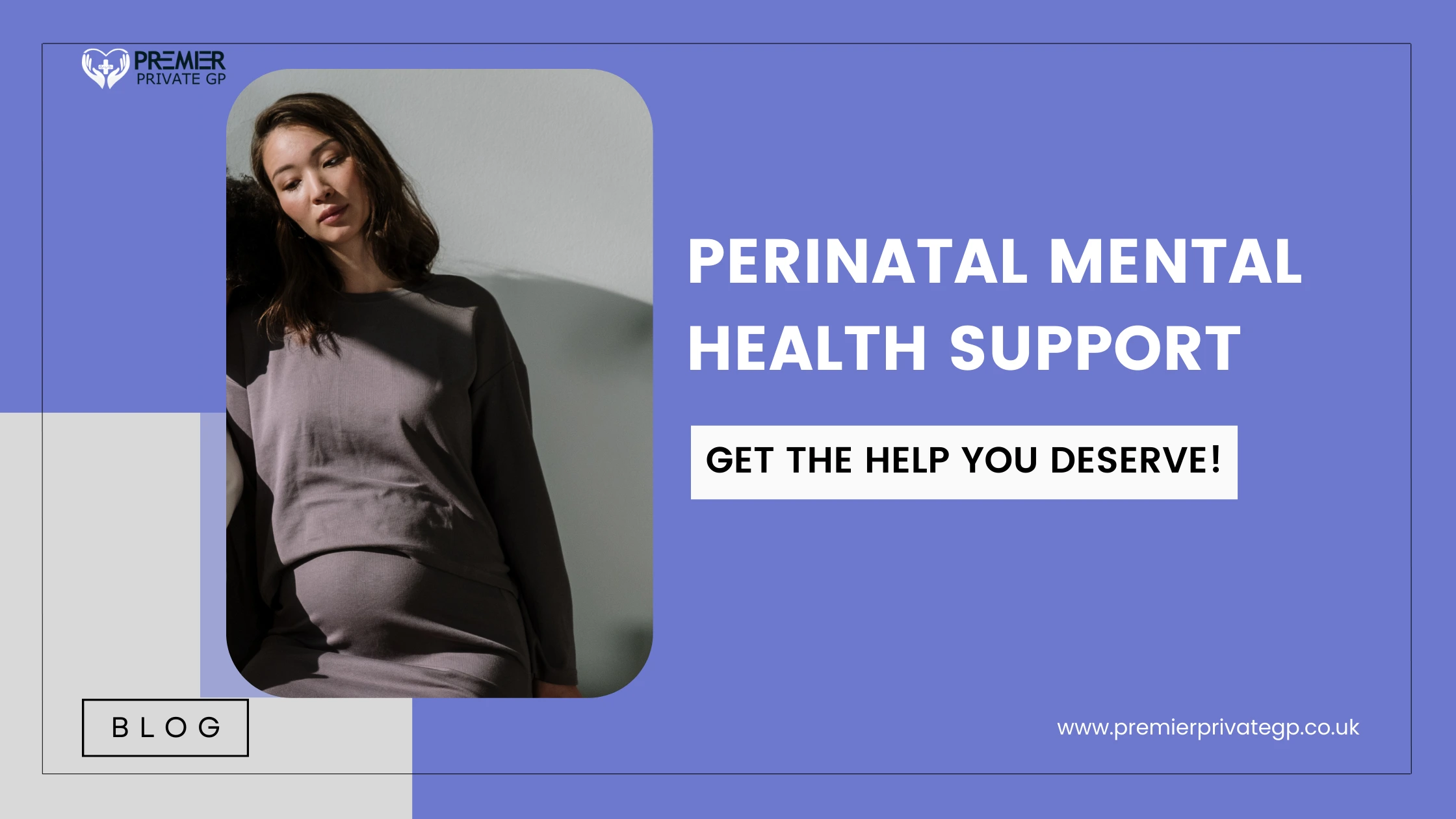Pregnancy and early motherhood can be joyful but they can also be overwhelming. Many women experience emotional ups and downs during this time. It’s important to know: if you’re struggling, you’re not alone. And you deserve support.
Let’s talk about perinatal mental health, what it means, and where you can find help.
Perinatal Mental Health
Perinatal mental health refers to your emotional well-being during pregnancy and in the first year after giving birth. It includes a range of conditions, from low mood and anxiety during pregnancy, to postpartum depression and more serious issues like postpartum depression psychosis.
These feelings are more common than you think. One in five women experience mental health problems during or after pregnancy.
Get the right care early and make all the difference.
Prenatal Depression – It’s Not Just the “Baby Blues”
We often hear about feeling down after birth, but what about during pregnancy?
Prenatal depression is depression that begins before the baby arrives and is often overlooked when talking about maternal health. If you want to understand the broader picture of how prenatal and postnatal care affect well-being, check out our recent blog on Why Prenatal & Postnatal Care Is Crucial.
Anxiety During Pregnancy
It’s normal to worry when you’re expecting. But if your fears are overwhelming you, it might be anxiety during your pregnancy period.
You might:
● Struggle to sleep
● Feel panicky or on edge
● Worry something bad will happen to your baby
● Find it hard to relax or enjoy your pregnancy
These feelings are valid. You don’t have to just get on with it. The support is always available, and it can really help.
Postpartum Anxiety & Depression
After birth, many mothers go through the baby blues. It usually passes in a few days. But for some women, low moods continue or even get worse.
Postpartum anxiety and depression differ from each other. Postpartum anxiety might feel like:
● Constant worry that something will go wrong
● Anxious about your baby’s safety, even with no clear reason
● Restless, tense, or unable to switch off
● Like you’re always in fight-or-flight mode
Postpartum depression can show up as:
● Feeling hopeless or tearful.
● Lack of interest in your baby
● Trouble sleeping, even when your baby is
● Not feeling like yourself
It’s not your fault of course. Many women experience this, and things get better with the right help. Remember it gets better when you get better.
Postpartum Depression Rage – Yes, It’s a Thing
It might surprise you to know that postpartum depression rage is real, and it is more common than people realise.
It’s that sudden, intense anger. Maybe it’s set off by small things. You might feel out of control or shocked by how you react.
This can be a symptom of underlying postpartum depression or anxiety. Again, you’re not alone, and it doesn’t make you a bad parent. These feelings are signs your body and mind are asking for support.
Postpartum Depression Psychosis
Postpartum depression psychosis is rare, but it’s serious. It usually starts within the first two weeks after birth.
Symptoms can include:
● Hallucinations (seeing or hearing things that aren’t there)
● Confusion or strange beliefs
● Feeling overly excited or paranoid
● Trouble sleeping or behaving differently than usual
Seek emergency help if you are noticing these signs. This condition is treatable, but it needs urgent care
Maternal Mental Health Is Important
This Maternal Mental Health Awareness Week, let’s shine a light on these struggles and remind women that help is out there.
You don’t have to suffer quietly. Whether you’re feeling low, anxious, angry, you deserve to be heard.
Need to Talk About It
Your mental health is just as important as your physical health. At our Premier Private GP clinic in Surrey, we offer compassionate support for women facing perinatal mental health challenges by providing mental and stress assessments as well. If you’re dealing with anxiety during pregnancy, postpartum depression, or any other emotional changes, know this:
You are not alone You are not to blame You can feel better with the right support
No matter what you’re going through, there’s no shame in asking for help. Contact us today for personalised, understanding care tailored to your needs, and book a confidential appointment.







